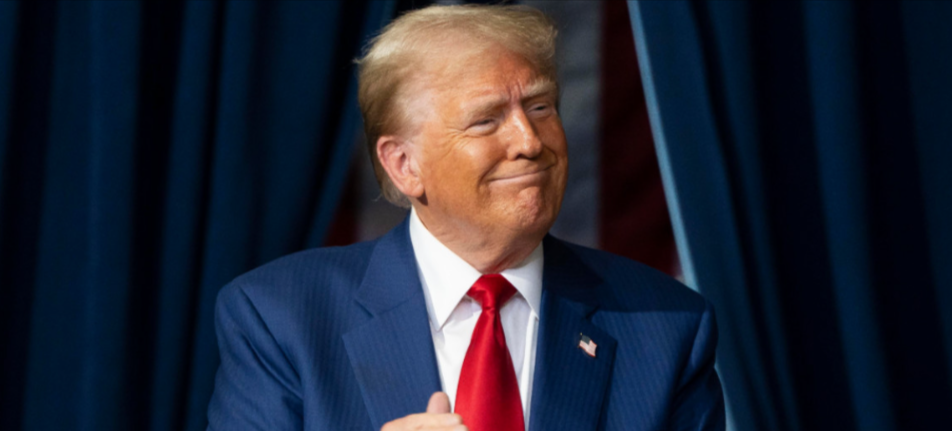Trump Just Made The BEST Decision of Presidency!

President Donald Trump’s approval rating has risen to 55%, according to a recent survey published over the weekend.
The Napolitan News and RMG Research poll revealed that 55% of registered voters support Trump’s performance, while 43% disapprove. Conducted between February 10 and 14, the national survey included 3,000 registered voters and had a margin of error of 1.8%, Just the News reported, citing the findings.
Another poll, released on Thursday, reflected a lower approval rating for Trump at 48%.
At the same time, major corporations are undergoing a notable shift in their stance and financial support for Diversity, Equity, and Inclusion (DEI) initiatives.
Last month, President Trump accelerated this transition by signing an executive order that eliminated DEI policies and roles within the federal government, also extending the prohibition to federal contractors, The Center Square reported.
Before Trump took office, some private businesses had already begun reducing their DEI efforts. However, his directive has prompted many companies to scale back their DEI commitments—at least symbolically—despite limited substantive internal changes, the outlet further noted.
Costco has resisted the Trump administration’s directive, refusing to comply, while major corporations such as Amazon, Walmart, Target, and Meta have announced pullbacks from DEI programs. Reports indicate that discussions about DEI have significantly decreased in corporate earnings calls.
Meanwhile, some firms, like Wisconsin-based financial services provider Fiserv, have not yet made any public changes to their DEI policies.
Companies that continue to implement DEI-based hiring practices may face legal uncertainty. This is particularly relevant for firms like Fiserv, which secures hundreds of millions of dollars in government contracts, The Center Square noted.
Currently, Fiserv’s website maintains a Diversity & Inclusion page, stating the company is “committed to promoting diversity and inclusion (D&I) across all levels of the organization, in our communities and throughout our industry.”
Additionally, the page states that Fiserv “partner[s] with people and organizations around the world to advance our D&I efforts and create opportunities for our employees, entrepreneurs around the world and the next generation of innovators.”
The company’s DEI section also includes a careers page emphasizing “engaging diverse talent” and hosting events aimed at connecting with “diverse candidates.”
Critics argue that DEI policies result in discrimination against white men and Asians, prioritizing race and sexual orientation over merit in hiring and promotions.
A turning point in the debate over DEI occurred during the Biden administration when the U.S. Supreme Court overturned long-standing affirmative action policies in American universities, citing cases of discrimination against white and Asian Americans.
Trump’s presidency has reinforced this legal shift, clarifying the extent to which race and gender can be factored into hiring, promotions, and workplace policies.
Trump’s executive order against DEI stated, in part:
In the private sector, many corporations and universities use DEI as an excuse for biased and unlawful employment practices and illegal admissions preferences, ignoring the fact that DEI’s foundational rhetoric and ideas foster intergroup hostility and authoritarianism.
Billions of dollars are spent annually on DEI, but rather than reducing bias and promoting inclusion, DEI creates and then amplifies prejudicial hostility and exacerbates interpersonal conflict.
DEI has become increasingly contentious, as activists use the label to advance various liberal policies on race and gender, often at taxpayer expense. Within the federal government, DEI had become deeply embedded in governance, influencing everything from racial quotas for Pentagon promotions to shaping healthcare research at the National Institutes of Health.
In private enterprises, DEI policies have dictated investment decisions through ESG (Environmental, Social, and Governance) strategies and have shaped personnel decisions through racial quotas in corporate boardrooms. These policies are now falling out of favor under the Trump administration.
Companies resisting the shift away from DEI could potentially face legal challenges.